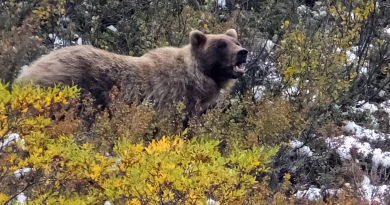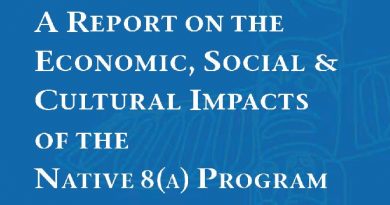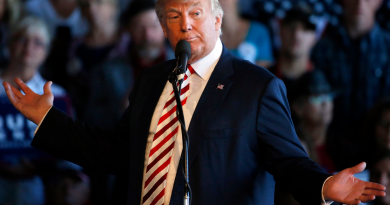Federal $600,000 grant aims to ease transition to Alaska health exchanges under Obamacare

401(K)2013 / cc via flickr
On Thursday, a handful of federal and state agencies gathered in Midtown Anchorage to announce the newest wrinkle in the Affordable Care Act (ACA), also known as Obamacare – a $600,000 grant by the U.S. Department of Health and Human Services to two Alaska organizations to help with education and outreach concerning the fast-approaching creation of health insurance exchanges.
“I think it’s a great, sunny day in Alaska,” said Susan Johnson, Region 10 Director for the U.S. Department of Health and Human Services.
The grant will be split about 50-50 between the United Way and Alaska Native Tribal Health Consortium. The former will focus on urban outreach, while the latter will do the same for rural areas. The grants train so-called “navigators,” people who will help guide residents through the thicket of options, requirements and exemptions under the federal law that takes effect in January.
The announcement comes as the start date of the Health Insurance Marketplace draws near. The Affordable Care Act mandates that individuals and small businesses lacking insurance enroll in the health-care exchange.
Those who lack health care will be able to enroll in the Health Insurance Marketplace on Oct. 1, and will have three months to sign up. If a person has not signed up by Jan. 1, a penalty on their federal tax returns will be assessed, Johnson said. Exemptions exist for low-income individuals, certain religious sects, people in jail as well as a handful of other situations.
About 139,000 Alaska residents – or 21 percent of the population — are uninsured.
Valerie Davidson, senior director for Tribal Health Consortium, said that the Affordable Care Act will help defray health-care costs for Alaska Natives. Alaska Natives and American Indians are exempt from the requirement to sign up for the health-care exchange, but some people have expressed interest in applying for insurance, she said.
Alaska Natives receive health care services through the Indian Health Services, but that covers only 50 percent of costs, with the rest billed to third parties — Medicaid, Denali Kid Care, or private insurance. Having more Alaska Natives signed up under the Affordable Care Act will allow for the sharing of Indian Health Services money with more Alaska Natives, she said.
Insurance premium rates are “under review,” and will be released by the Federal government in September, Johnson said. Two insurance providers have offered to represent Alaska — Premera Blue Cross and Moda Health. A third provider may join the marketplace, too. Whether insurance rates will increase, decrease or hold steady remains to be seen.
The major benefit in the health-care exchange portion of Affordable Care Act is that it allow people to compare “apples to apples,” Johnson said, as all insurance providers are tasked with providing the same coverage, including increased coverage for conditions and situations that were not previously covered, such as pre-natal care.
Signing up for insurance will also be akin to one-stop shopping, as all the options will be consolidated at healthcare.gov. Enrollment is available in-person or by mail.
Whether the health care exchange will be ready on Oct. 1 has been debated among Congressional representatives, while the Obama administration has remained adamant that the exchange will be set to go on Oct. 1.
Problems with the health-care exchange enrollment are anticipated in the short term.
“Let’s be clear — there will be problems,” Johnson said, but she urged people to look at the larger picture, which she said will include better health care for Alaskans.
Gov. Parnell declined to create a state-based exchange. Consequently, Alaska’s health care exchange will berun by the U.S. Department of Health and Human Services. Alaska joins 27 other states in turning down a state-based health exchange.
“Alaskans will not see our state treasury bear the additional costs of maintaining and operating the underfunded federal mandate that is Obamacare,” Parnell wrote in an Aug. 14 press release.
The disadvantage, according to Johnson, is that the state will be “missing that glue” of local connections and partnerships that can facilitate a more-supported and streamlined health-care system, now that the implementation is left to the Federal government.
Still up in the air is whether Parnell will oppose an expansion of Medicaid under the Affordable Care Act.
If Medicaid is expanded in Alaska, it will cover all residents up to a certain income threshold. Federal Medicaid dollars funneled to Alaska would amount to $1.1 billion between 2014 and 2020, according to a study conducted by the Health Policy Center in Washington D.C. It would also reduce the amount of uninsured Alaskans to 15 percent. Alaska would pay 10 percent of the costs after 2020, amounting to $25 million the first year.
Nancy Merriman, executive director of the Alaska Primary Care Association, said she hoped that Parnell would choose to expand Medicaid.
However, Parnell “has opposed it thus far. The next ‘decision point’ will come when he submits his budget in December,” wrote spokesperson Sharon Leighow on Thursday.



